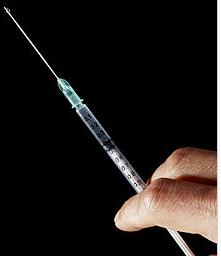The great divide of "vaccine vs. no vaccine" has just grown wider. Pfizer's mRNA vaccine, now called Comirnaty, just received full approval from the FDA. Although the final approval was a foregone conclusion, it now will give more ammunition to public and private companies and agencies that favor strict mandates. As my colleague Cameron English recently wrote, neither "guilting" people nor mandating vaccines are ideal, but the United States still has 100 million people who qualify for the COVID vaccines but remain unvaccinated – an unacceptable number by any measure. Whether you agree with mandatory vaccination or not, life is about to get more restrictive for those who remain unvaccinated.
Workers in the Medical Field Say Yes to Vaccines and Boosters
Fortunately, people in the medical field are behind vaccines in a big way. Back in March, the percentage of doctors and nurses who were vaccinated was 75% and 57%, respectively, but data from a recent survey published by Medscape Medical News suggest a modest though significant shift in opinion within the medical community. (2)
When asked, "Do you want to get a booster shot" both groups answered "yes" about 90% of the time, but nurses tended to be more cautious. (Figure 1)

Figure 1. The percentage of doctors and nurses who want to get a booster shot ASAP August 4-15. Source: Medscape
Half the physicians wanted the booster shot right away, even though they don't yet qualify for it, or maybe they do. Most of the rest of the doctors answered that they wanted the booster once it was recommended. Ninety-four percent of doctors answered "yes" to the booster, while only three percent said "no."
Nurses were somewhat more cautious. Although 88 percent of them agreed that they wanted the booster, 50 percent wanted to wait until it was recommended, while only 38 percent chose to get it immediately. Eight percent answered that they didn't want the booster at all.
If you're thinking that these results might be skewed because the survey failed to take into account the doctors and nurses who were not vaccinated, this was not a concern as these numbers were very low. The overwhelming majority (98 percent of physicians and 94 percent of nurses) answered that they were already fully vaccinated, so it is fair to conclude that medical professionals are almost entirely in favor of the booster shot, and not by a little.
Patients are not as enthusiastic
The survey also asked doctors and nurses how often patients asked about the booster shot. The results were lower but similar. Physicians reported that patients asked often or sometimes 70 percent of the time, while nurses were asked the same question 63 percent of the time. (Figure 2)

Figure 2. Patients ask their healthcare providers about the booster the majority of the time. Source: Medscape Medical News
The Blame Game
It is unfortunate that we are even discussing booster shots seven months after we began to get vaccinated. But don't blame the scientists who developed the vaccines; blame the viruses. Viruses are exquisitely designed to evolve and stay ahead of our immune system. It is just this evolution that has produced Delta and will subsequently produce whatever horror show is coming next. It is inevitable but can be minimized by having fewer infected people.
So, while we're assigning blame, let's not forget people who refuse to be vaccinated. Every COVID-infected human body is a "bioweapons" laboratory in which billions of replicating viruses are programmed by their RNA to make errors (mutations). While the overwhelming majority of these mutations don't result in viable viruses every so often a random change will lead to a "better" virus – one that can become the predominant circulating variant. This is how Delta got its start. More infections offer more possibilities for a successful variant to emerge from the "lab."
Get the damn vaccine. Things are bad enough.
NOTE:
(1) Bear in mind that this is only a survey, not a randomized controlled trial (or anything close). Therefore, one should be cautious in its interpretation. At best, we are looking at trends, not hard data.
(2) Interestingly, only one percent of doctors and three percent of nurses received the J&J vaccine (not eligible for any booster). There is a simple (perhaps even correct) explanation for this: Pfizer and Moderna received the EUA on December 11, 2020 while J&J had to wait until February 27. I would not conclude anything whatsoever about the relative efficacy of the mRNA vaccines based on the small number of people who received the J&J shot. It is unlikely that they had a choice at the time.



